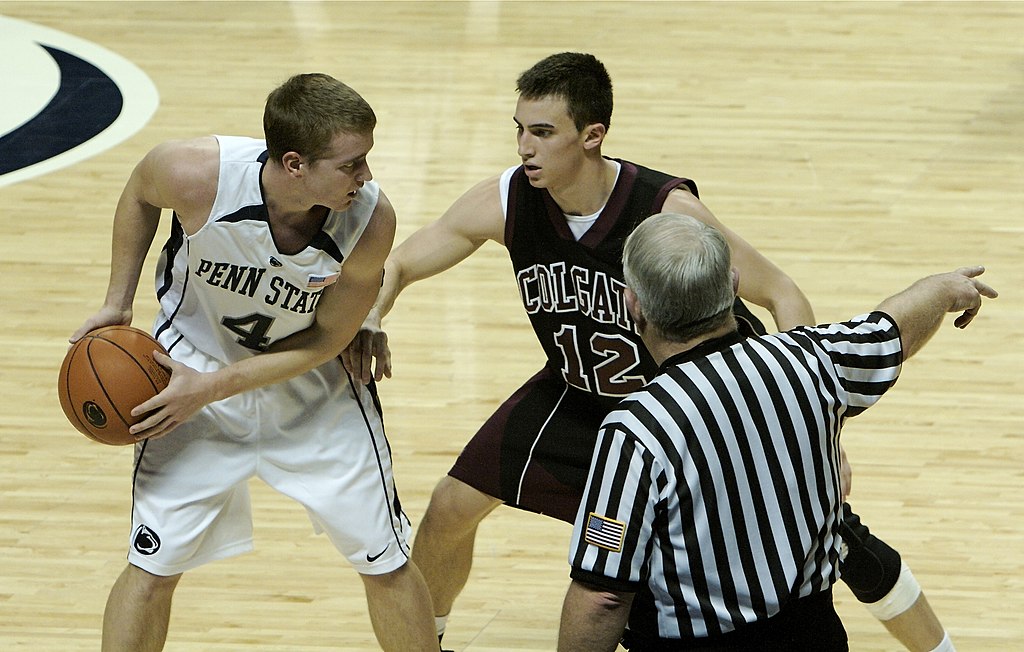
Otto Barenberg is a student at Harvard Law School and the Digital Director of OnLabor.
In today’s news and commentary, an NCAA settlement would allow revenue-sharing and direct payments to college athletes; the UAW invokes Cemex in its Mercedes election challenge; and Biden moves to secure a Democratic NLRB majority through 2026.
Last week, the National Collegiate Athletics Association (NCAA) proposed a historic $2.75 billion settlement that, for the first time, would establish revenue-sharing in college athletics and allow schools to pay athletes directly. The agreement, which must be approved by a U.S. District Court judge in California, marks the NCAA’s attempt to resolve three pending antitrust lawsuits that allege the league unlawfully denied athletes compensation for the commercial use of their names and likenesses. The NCAA’s revenue-sharing scheme includes a commitment to pay athletes 22 percent of the league’s media contract revenue, well below the 50 percent average across professional sports.
The settlement comes amid intense debate over whether college athletes are misclassified as students, rather than employees, for purposes of labor and employment law. In March, for instance, Dartmouth College refused to bargain with its men’s basketball team after they voted to become the first group of college athletes to unionize. And a pending Fair Labor Standards Act case before the Third Circuit Court of Appeals alleges the NCAA illegally denied athletes minimum wage. By permitting revenue-sharing and direct payment of college athletes, the antitrust settlement may undermine the NCAA’s longstanding claim that athletes are not employees under federal law. As law professor Anne Marie Lofaso told Bloomberg Law, “the NCAA and schools have built this wall between employment status and student status for the players,” but after the settlement, “I won’t say the wall is down, but it’s extremely weakened.”
On Friday, the United Auto Workers (UAW) filed objections to Mercedes-Benz’s “relentless anti-union campaign,” asking the National Labor Relations Board (NLRB) to set aside its May 17 unionization defeat at the German automaker’s Alabama plants. Although 70 percent of Mercedes employees signed UAW cards in the lead up to the election, only 44 percent voted in favor of unionizing. The union argues numerous unfair labor practices (ULPs) unlawfully eroded its support, including coercive captive audience meetings, suppression of pro-union speech, firings of UAW supporters, drug tests targeted at pro-union workers, and “inflammatory appeals to racial prejudice.” In its challenge, the UAW invoked Cemex, the seminal Board decision from last August that requires employers to bargain when they commit nontrivial ULPs during the “critical” preelection period and the union once had a card majority. Although the UAW asked only for a new election in its filing, the Board may nonetheless issue a bargaining order under the Cemex standard.
President Biden renominated NLRB Chair Lauren McFerran for a third five-year term in the hopes of securing a Trump-proof Democratic majority on the Board through 2026, when Member David Prouty is set to vacate his seat. McFerran’s current term expires in December. If the Senate fails to confirm her renomination and Biden loses the presidential race, the Board could have a Republican majority in early 2025. Biden also nominated Joshua Ditelberg, a Chicago-based labor lawyer at Seyfarth Shaw LLP, to fill a Republican seat vacated by John Ring, the former Chair of the Trump Board. The White House plans to advance the Democratic and Republican nominees as a package.






Daily News & Commentary
Start your day with our roundup of the latest labor developments. See all
July 15
The Department of Labor announces new guidance around Occupational Safety and Health Administration penalty and debt collection procedures; a Cornell University graduate student challenges graduate student employee-status under the National Labor Relations Act; the Supreme Court clears the way for the Trump administration to move forward with a significant staff reduction at the Department of Education.
July 14
More circuits weigh in on two-step certification; Uber challengers Seattle deactivation ordinance.
July 13
APWU and USPS ratify a new contract, ICE barred from racial profiling in Los Angeles, and the fight continues over the dismantling of NIOSH
July 11
Regional director orders election without Board quorum; 9th Circuit pauses injunction on Executive Order; Driverless car legislation in Massachusetts
July 10
Wisconsin Supreme Court holds UW Health nurses are not covered by Wisconsin’s Labor Peace Act; a district judge denies the request to stay an injunction pending appeal; the NFLPA appeals an arbitration decision.
July 9
the Supreme Court allows Trump to proceed with mass firings; Secretary of Agriculture suggests Medicaid recipients replace deported migrant farmworkers; DHS ends TPS for Nicaragua and Honduras